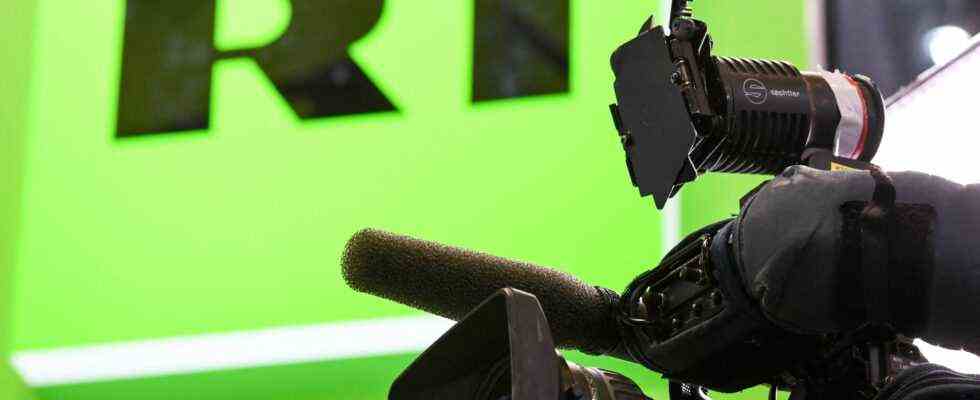Exclusive
Status: 05.11.2021 6:00 a.m.
Of the top 100 most watched videos by RT DE, 67 videos contained a reference to Covid-19.The Russian state broadcaster RT DE is one of the most important sources for corona deniers and “lateral thinkers” in Germany. Analysis reveals the reach of Russian propaganda, which is often based on misleading claims.
It has been known and documented for years that Russian propaganda in the USA, Germany and other countries specifically tries to stir up moods. A particularly large number of conflicts can be observed in the corona pandemic, discussions about restrictions on basic rights and vaccinations are causing polarization and, in some cases, radicalization. These conflicts are specifically fueled by Russian propaganda.
A data analysis carried out by the Institute for Strategic Dialogue (ISD) and the Reset organization shows that RT DE is one of the most important keywords for corona deniers and vaccination opponents.
Even before RT DE was blocked by YouTube, a team of researchers analyzed how successful certain RT DE headlines on Covid-19 were and how the interplay between the corona denier scene and the Russian state broadcaster was developing. The analysts found: RT DE was able to reach a wide audience via YouTube: 84 of the top 100 most popular videos had more than 100,000 views from the beginning of March to the end of July 2021 at the time the data was collected. The most popular video had 1.2 million views.
Of the 100 most viewed videos by RT DE, 67 videos contained a reference to Covid-19. Again 61 of them had a critical position against the Corona measures in Germany, the USA and other democracies as well as against “western” Covid-19 vaccines. Three were rated as neutral, one of the videos analyzed presented the pandemic situation in Russia in a positive light.
The videos analyzed often contained misleading or false claims about Covid-19, mostly in the form of statements by dubious “experts” that were not verified or classified.
The report on Russian propaganda states that many of RT DE’s contributions are “in a critical gray area between disinformation and freedom of expression”. Often it is a question of a “strongly out of context representation of facts and statements”.
In addition, the researchers examined a selection of 279 German-language Telegram channels from the right-wing extremist and conspiracy-ideological milieu. The result: RT DE was one of the most popular sources here.
By reporting on the Covid-19 pandemic, “RT DE has become an organic part of the online communities of Covid-Speptics,” the researchers write. RT DE is seen as a trustworthy medium in these groups. In such forums, criticism of measures to contain the pandemic is usually combined with general criticism of the “system” – the established political institutions and media.
RT DE does not have a broadcast license for Germany. However, the range is to be increased further via social media. According to the report, state broadcasters in Russia will have around 1.2 billion euros in budget funds available in 2021 alone. In the coming years, an additional 2.5 billion euros are to be invested in the development of state media, among other things with the aim of increasing RT’s reach abroad.

